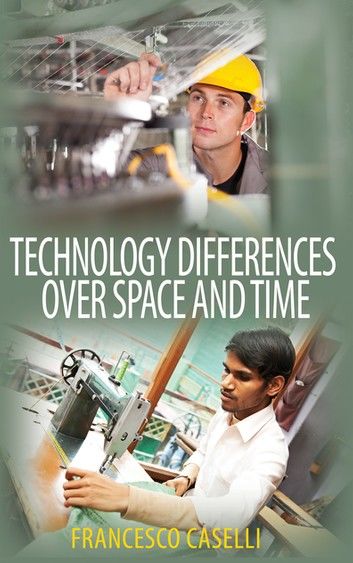| FindBook |
有 1 項符合
Technology Differences over Space and Time的圖書 |
 |
Technology Differences over Space and Time 作者:Francesco Caselli 出版社:Princeton University Press 出版日期:2016-11-22 語言:英文 |
| 圖書館借閱 |
| 國家圖書館 | 全國圖書書目資訊網 | 國立公共資訊圖書館 | 電子書服務平台 | MetaCat 跨館整合查詢 |
| 臺北市立圖書館 | 新北市立圖書館 | 基隆市公共圖書館 | 桃園市立圖書館 | 新竹縣公共圖書館 |
| 苗栗縣立圖書館 | 臺中市立圖書館 | 彰化縣公共圖書館 | 南投縣文化局 | 雲林縣公共圖書館 |
| 嘉義縣圖書館 | 臺南市立圖書館 | 高雄市立圖書館 | 屏東縣公共圖書館 | 宜蘭縣公共圖書館 |
| 花蓮縣文化局 | 臺東縣文化處 |
|
|
Technology Differences over Space and Time looks at how countries use their productive resources—such as workers, skills, equipment and structures, and natural resources. Francesco Caselli develops methods to assess the efficiency with which productive inputs are used, and how these efficiencies vary across countries and over time.
Caselli finds that richer countries use skilled workers relatively more efficiently than unskilled workers, and equipment and structures relatively more efficiently than natural resources. They also are relatively more efficient users of labor than of capital. Technological change tends to make countries particularly efficient at using skills and less efficient at using capital. Technical change also favors experienced workers.
In order to interpret and understand these findings, Caselli presents a theory of technology choice. In this theory, firms pick technologies that make the most efficient use of the most abundant production factors when these factors are good substitutes for the less abundant factors. Firms pick technologies that make the most of less abundant factors when other suitable factors are not available for substitution. For example, rich countries, where skilled workers are abundant, use skilled workers efficiently, as these are good substitutes for unskilled workers. This flexible framework can be applied to other pairs of inputs, over time, and across countries.
Technology Differences over Space and Time has significant implications not only for the theoretical understanding of development and technological innovation, but also for government formulation of industrial policy and multinationals making decisions about what to invest in and where to make those investments.
|










